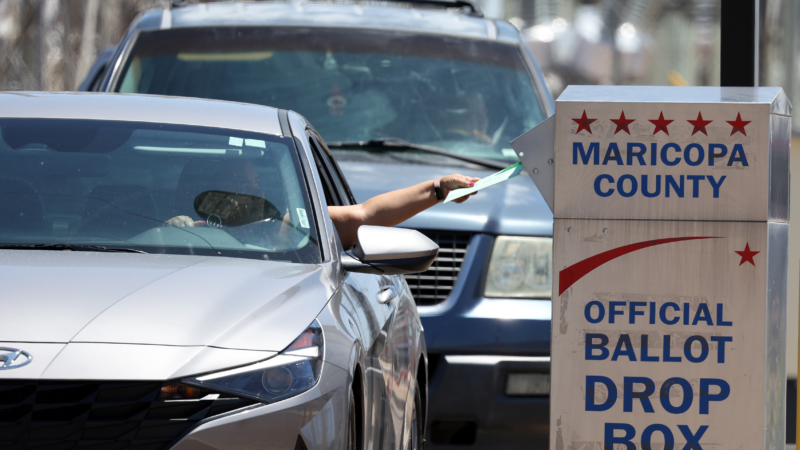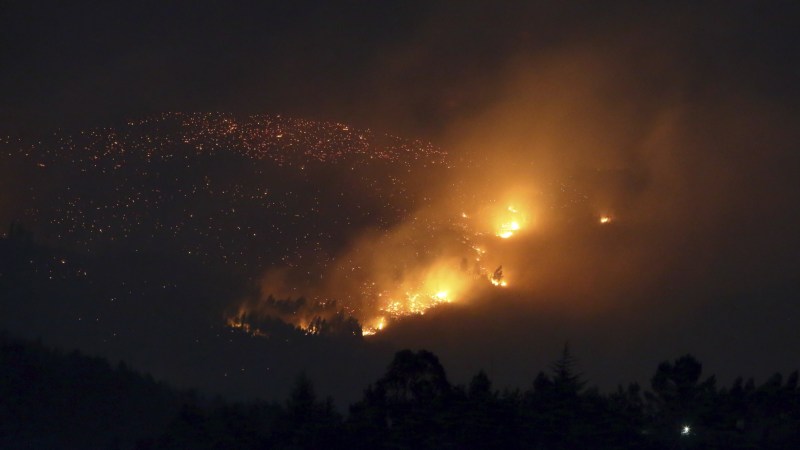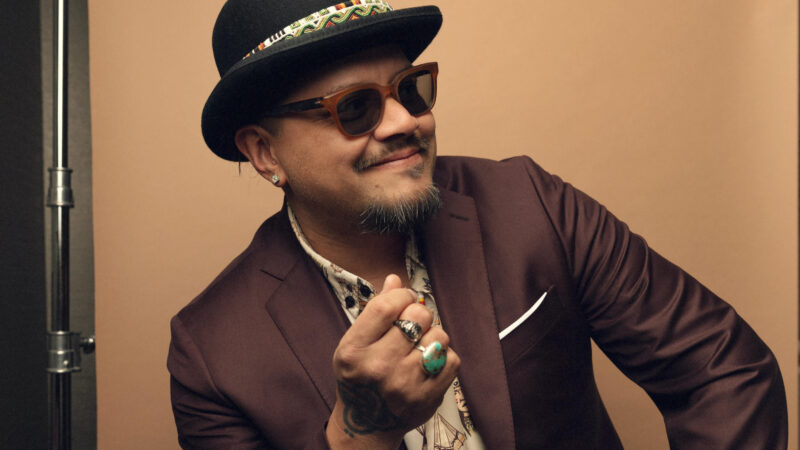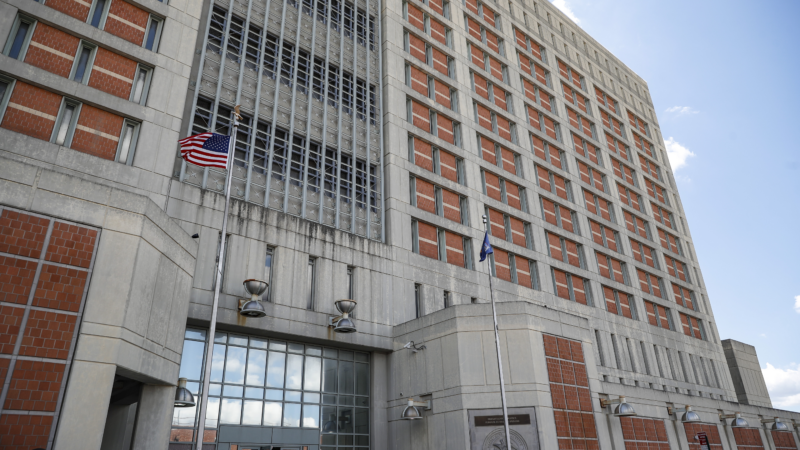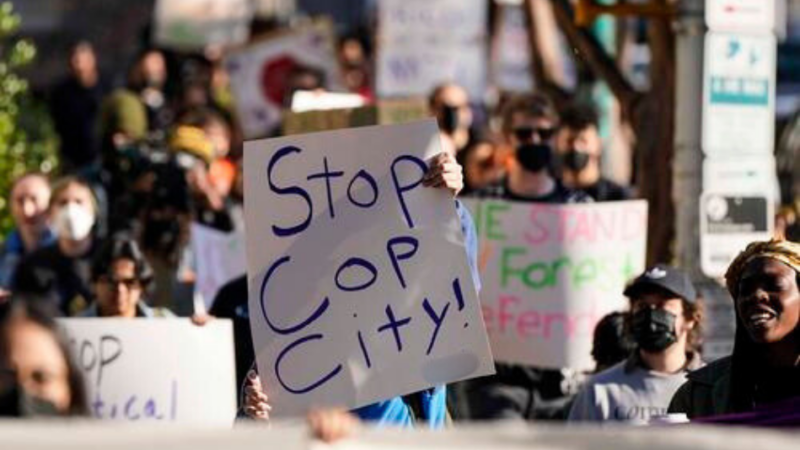A records flaw could block thousands in Arizona from voting in state and local races
Election officials in Arizona have discovered a flaw in the state’s voter registration system that could disqualify nearly 100,000 people from voting in state and local races just weeks before early ballots will hit mailboxes.
A state law that went into effect in 2004 requires Arizona voters to provide proof of citizenship to register to vote in state and local elections, though individuals that do not provide proof can still register to vote for federal offices like president and U.S. Senate using a federal only form.
Arizona’s voter registration system pulls information from the state’s driver’s license database as a method of proving citizenship, but the Maricopa County Recorder’s office found a flaw with the database, which incorrectly showed that some people provided proof of citizenship when they applied for a driver’s license.
The issue affects just a tiny fraction of the roughly 4.1 million people registered to vote in Arizona — roughly 98,000 voters who got a license before Oct. 1, 1996, said Arizona Secretary of State Adrian Fontes on Tuesday.
“That’s the day when Arizona started requiring proof of legal presence in the United States to get a driver’s license,” Fontes said.
Maricopa County Recorder Stephen Richer, who oversees early voting and voter registration in the nation’s fourth largest county, said his office discovered a glitch in that system while verifying the citizenship of a person with a pre-1996 license. The office found that the person was a lawful permanent resident but not a citizen eligible to vote.
Fontes said there is no evidence that person voted or attempted to cast a ballot.
But the discovery sent election officials in Arizona down a rabbit hole that revealed tens of thousands of voters in every county in the state have not provided the documentation required to vote a full ballot under Arizona law.
That doesn’t mean those people aren’t eligible to vote, though, Fontes said.
“This was discovered not because somebody was voting illegally and not because somebody was attempting to vote illegally,” he said. “As far as we can tell, this was basic voter roll maintenance.”
Now, Richer and Fontes are asking the Arizona Supreme Court to decide how to deal with the voters affected by the revelation.
In an emergency petition filed with the court, Richer, a Republican who has defended the county’s election systems from critics like former President Donald Trump, argues the 98,000 voters should only be allowed to vote in federal elections unless they provide proof of citizenship by Election Day.
“It is my position that these registrants have not satisfied Arizona’s documented proof of citizenship law, and therefore can only vote a ‘federal-only’ ballot,” said Richer, who was defeated in this year’s Republican primary by a Trump ally.
That “federal only” status would allow them to vote in races like the presidential contest between Trump and Vice President Kamala Harris, but would prevent those voters from weighing in on a lengthy list of proposed laws going before Arizona voters this year, including a measure to put abortion rights into the state Constitution.
Fontes, a Democrat, called Richer’s filing a “friendly litigation,” saying their offices coordinated the legal effort in order to obtain a firm legal ruling about how to proceed.
But Fontes is taking a different position than his Republican counterpart. He said his office plans to file a reply with the court, asking it to allow the 98,000 impacted voters to vote a full ballot this year.
He said it is too close to an election to make these types of changes to the voter rolls and he doesn’t believe there is evidence that a significant number of the affected individuals are not eligible to vote.
“By the way, every single one of these voters has met the minimum criteria in swearing an affirmation under penalty of perjury that they would have to do to vote in every election across the rest of the United States of America,” he said, adding that only Arizona requires additional proof of citizenship to vote.
He said he hopes to have a ruling by the end of the week as the state begins sending ballots to overseas citizens and military personnel. If that isn’t possible, he hopes for a ruling before the state begins sending out early mail-in ballots on Oct. 9.
Fontes acknowledged that publicly disclosing the problems with the voter registration system is likely to inflame already high tensions in Arizona and Maricopa County, hotbeds of unproven allegations of voter fraud following Trump’s loss to President Biden in 2020.
“This has already spurred new conspiracy theories about this election, but those conspiracy theories are just as good as all of the other conspiracy theories are,” Fontes said. “We have the facts. We are bringing them forward in a very transparent way.”
But Fontes said election officials had no choice other than to go public.
“We are being open and transparent in bringing this issue forward,” he said. “We are making absolutely certain that folks understand that good, bad or indifferent, we are going to keep the public informed.”
Arizona Gov. Katie Hobbs, a Democrat and former secretary of state, said the Arizona Department of Transportation’s motor vehicle division fixed the problem with the driver’s license database.
“After Recorder Richer brought an erroneous voter registration record to my attention, my team identified and fixed an administrative error that originated in 2004, and affects longtime residents who received a driver’s license before 1996,” Hobbs said in a statement.
Fontes said the fix will solve the problem moving forward.
Portugal declares a state of calamity as wildfires rage out of control
More than 100 wildfires stretched thousands of firefighters to the limit in northern Portugal on Wednesday, with seven deaths as fires spread out of control over the weekend.
Sterlin Harjo didn’t see himself in the TV shows he watched – so he made one
When Sterlin Harjo was growing up, he didn't see many Native Americans in mainstream media. But Sterlin's TV show, Reservation Dogs, changed that, depicting the lives of four Native teenagers growing up in Oklahoma. Sterlin talks to Rachel about how he thinks fate has guided his life, why people should go to more funerals and how hunting feels like praying.To listen sponsor-free, access bonus episodes and support the show, sign up for Wild Card+ at plus.npr.org/wildcard
Inside the Brooklyn jail where Sean Combs is locked up: violence, squalor and death
As they fought to keep Sean "Diddy" Combs out of jail after his sex trafficking arrest, the music mogul's lawyers highlighted a litany of horrors at the Brooklyn federal lockup where he was headed.
GPB evening headlines for September 18, 2024
Prosecutors have dropped some charges against three people indicted in connection with Atlanta police training center protests. The two candidates for district attorney in Savannah's Chatham County clashed over experiences and records in a forum this week. Georgia's Supreme Court is rejecting an effort to force new Republican primary elections in northwest Georgia's Catoosa County.
Forget tedious paper applications, Americans can now renew passports online
The State Department announced Wednesday that its online renewal system is now fully operational, after testing in pilot programs, and available to adult passport holders whose passport had expired within the past five years or will expire in the coming year.
Vance says Haitian migrants with protected status are ‘illegal aliens’ to be deported
The Republican vice presidential nominee continues to rail against Haitian migrants living in Ohio, though many have Temporary Protected Status, as the GOP escalates its hardline immigration stance.
